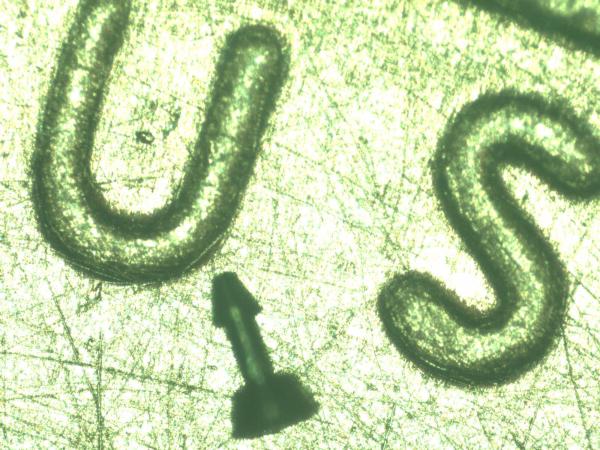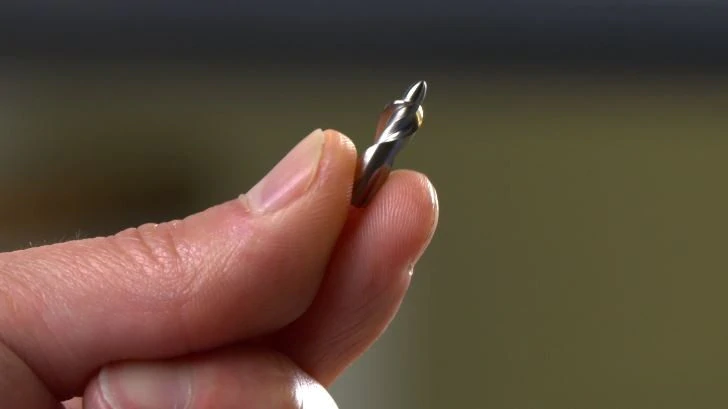Ideas into Reality: How Precision Machining Impacts Innovation
Medtronic teams create tiny components that could be part of the next med tech breakthrough.
June 1, 2019 -- Medtronic continues to make headlines with Micra™, a less-invasive, self-contained pacemaker that is 93% smaller than conventional ones. Today, the “world’s smallest pacemaker” has been implanted in tens of thousands of patients around the world.
And while engineers and physicians played a major role in developing Micra™, another small Medtronic team was critical in turning the concept of a vitamin-sized pacemaker into reality.
A team of precision machinists.
“Through this capability, we help fuel innovation and creativity,” says Andrzej Malewicz, Vice President of Research and Development for Medtronic Therapy Delivery Systems. “We can accelerate product development and try to predict reliability and performance of devices.”
A Design Takes Shape
A design for a new medical device starts with a team of engineers. But early in the process, they’ll turn to physicians for feedback.
“We want to get our ideas into the hands of doctors,” says Maggie Pistella, a senior mechanical design engineer at Medtronic. “But they need to have something physical to look at and to try out.”
That’s when designers like Maggie entrust their ideas to the precision machinists.
“We’re willing to tackle some of the most complex jobs,” says Guy Thayer, engineering manager for the team.
Using the latest Swiss-machining technology, the complex parts they produce are used to create prototypes, matching the engineer’s exact design. (What is Swiss-machining? It refers to a specialized process for machining small, high precision turned parts.)
Some of the finished components are hard to describe – or even see.
We’ve Swiss-turned some parts that literally fit on the head of a pin.
Guy Thayer Engineering Manager Precision Machining Team
“We can hold tight tolerances on some really small parts,” says Thayer. “We’ve Swiss-turned some parts that literally fit on the head of a pin.”
One part the team created was 45,000 times smaller than a penny.
“We know this helps our engineers,” he says. “And who knows, one of these components could be part of the next great medical device.”
An Advantage In, and Outside the Company
Precision machining is typically used on production lines creating the same part or component hundreds of times each day.
But at Medtronic, the machining team makes iterations of individual prototypes to accelerate research and development.
“If we don’t have parts quickly, it delays testing,” says Pistella. “We have to prove the design will work the way we think it will.”
Pistella believes having an in-house machining team at her fingertips saves valuable time.
“If you have to go to outside vendors to create parts and prototypes, it can take months,” she says. “If we can begin testing sooner, the faster we can gather the appropriate data.”
And that data is critical in the early stages of development. It allows engineers to receive immediate feedback and move forward or go back to the drawing board.
“When engineers have ideas they’re not fully baked right away,” says Malewicz. “Having the ability to tweak designs and produce another revision – in house – means we can reduce the time it takes for them to get to patients.”
And keeping the focus on patients ultimately aligns with the Mission of the company – to alleviate pain, restore health, and extend life.
Meaningful Work
Thayer and his team members share a keen sense that the projects they work on make a difference for people.
“We want to make the impossible, possible,” says Lukas Nelson, a machinist on Thayer's team.
Lukas understands this better than most. At age 14, doctors diagnosed him with a condition in which his heart beat too fast. He underwent a heart ablation which helps to stop the arrhythmia. Seeing the power of what medical technology can do led him to Medtronic.
“I get to use my machining skills in a meaningful way,” he says. “If I do my best, that’s going to be the best for someone else.”

